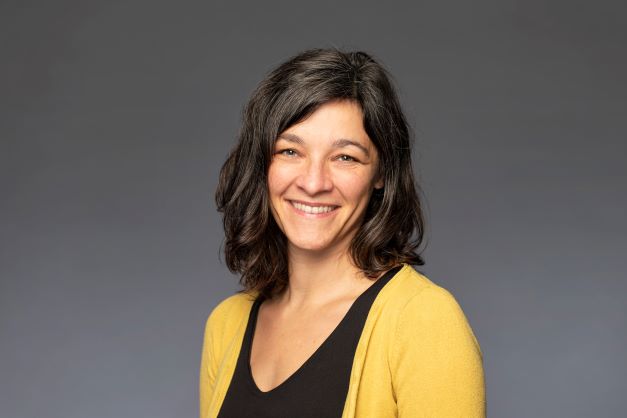
I am a Professor of Digital Societies at the University of Graz, Austria. My research attends to the increasing importance of digital data in the public sector, education and for ageing populations. Theoretically and conceptually, my research is situated in the areas of critical data studies, new materialism and feminist STS. Key to my research and teaching is the question of how we can design more sustainable, inclusive, and participatory sociodigital futures.
Between 2014 and 2022, I worked as a postdoctoral researcher at the University of Bremen, Germany where I co-founded the university’s Data Science Center. I received my PhD from Lancaster University, UK and worked there as research associate at the Centre for the Study of Technology and Organisation (2013/2014). I was a visiting research fellow at the Federal University of Minas Gerais, Brazil (February/March 2018) and the University of Bristol, UK (April/May and August/September 2022). I hold an MSc in IT, Management and Organisational Change (Lancaster University), an MA in Philosophy and BSc in Informatics (both from the University of Hamburg, Germany). I also serve as an independent expert to the European Commission in the areas eInfrastructures and Digital Science since 2009.
I have co-organised the Data Power Conference three times (2019 in Bremen, 2022 as a hybrid event in Bremen, Sheffield, Ottawa and online, and 2024 as a hybrid event in Graz, Bangalore and online). Based on the 2019 conference, I co-edited the open access volume “New Perspectives in Critical Data Studies. The Ambivalences of Data Power” (with Andreas Hepp and Leif Kramp, 2022, Palgrave). Data Power 2022 resulted in the co-edited open access book “Dialogues in Data Power: Shifting Response-abilities in a Datafied World” (with Jo Bates, 2024, Bristol University Press). The book is an experiment in facilitating dialogues between Critical Data Studies scholars across disciplines and geographical locations and has resulted in nine collectively authored chapters. My third co-edited book “Algorithmic Regimes: Methods, Interactions and Politics” (with Bianca Prietl, Simon Egbert, Yana Boeva, Hendrik Heuer and Maike Arnold, Amsterdam University Press) is also open access and brings together STS and computer science scholars to consider the shifting knowledge regimes in datafied societies. I also published the open access monograph “Co-creating Digital Public Services for an Ageing Society” (Springer) which explores how older populations can be engaged in the design and delivery of digital services based on open government data.
In addition to these books, I have co-edited four special issues: The first was “Probes as Participatory Design Practice” (with Susanne Maaß, 2018, i-com Journal of Interactive Media) for which we invited authors to report and reflect on the use of “cultural probes” for participatory design research projects. In 2019 the special issue “The Datafication of Education” (with Andreas Breiter, Learning, Media and Technology) introduced critical data studies to research on educational technologies. Following up on this important research in education, I co-edited a special issue on ”Designing Postdigital Futures” (with Felicitas Macgilchrist, Heidrun Allert and Teresa Cerratto-Pargman, 2024, Postdigital Science and Education) which comprises of 20 papers, 2 commentaries and 2 interviews centering around questions of social justice, datafication, design and community responses in education. Lastly, I co-edited a special issue on “Care-ful Data Studies” (with Irina Zakharova, 2024, Information, Communication and Society) in which we ask what we see when we look at datafied societies through the lens of care (ethics).